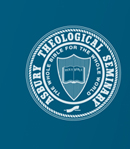Abstract
Charles Wesley is well remembered as the "poet laureate" of Methodism, whose rousing hymns continue to adorn Christian worship. This article suggests that he was also a significant theologian; a theologian of the experimental variety, who used religious experience as a means for translating theological doctrine into the realm of Christian life. Religious experience played an important role in Wesley's poetical approach to the Bible, and allowed him to unite human hearts and minds in biblical affirmations. In this sense, Charles's hymns were aptly described (by John Wesley) as "practical divinity." A close examination of Charles Wesley's vocabulary of religious experience (through words like "feel," "prove," "to know," and "taste") indicates that his own creative synthesis of reason and experience produced a kind of "practical divinity" that still has potency for modern Christians.
Based on this assessment it is concluded that Charles Wesley was a creative theologian, who blended evangelical theology with religious experience to form his own brand of religious empiricism. Formed in the language of religious praise, Charles's hymns are first-order theology. They are not merely words said about God, they are in fact, words said (or sung) to God. As such, Charles Wesley’s hymns actually playa role in inducing the experiences they describe.
DOI
10.7252/Journal.01.2006S.03
Recommended Citation
Tyson, John R.
(2006)
"Charles Wesley and the Language of Evangelical Experience: The Poetical Hermeneutic Revisited,"
The Asbury Journal:
Vol. 61:
No.
1, p. 25-46.
Available at:
https://place.asburyseminary.edu/asburyjournal/vol61/iss1/4

